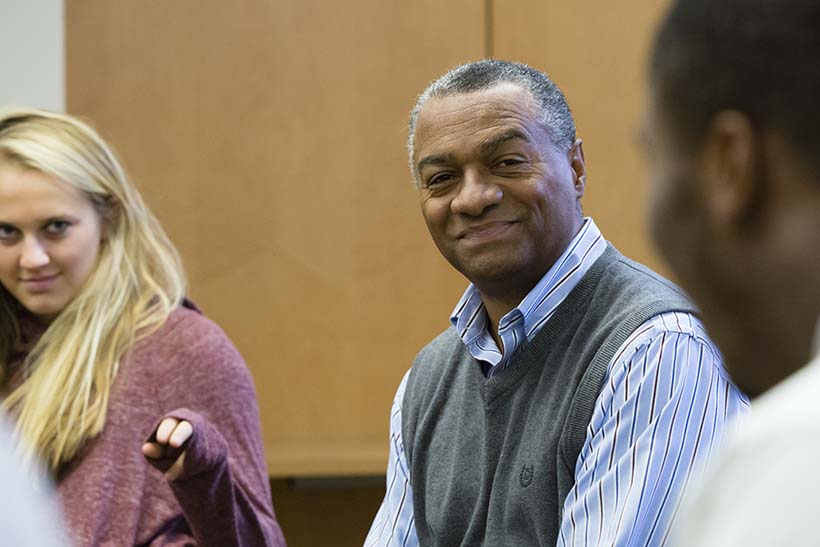
A professor of psychology at Amherst for 20 years, Hart served in the Student Affairs office for a decade and is now a member of the Committee of Six, the faculty’s executive committee which advises the president and the faculty on matters of college policy.
Q: What major changes have taken place at Amherst since your student days?
A: My first year as a student was 1978, one of the early years of coeducation. The major comparison between now and then is the integration of women on campus as full time students. I think the implicit assumption was that the institution wasn’t going to change, and in fact that we'll just plug in this new segment of the student body and they will conform to everything that’s always been so great about Amherst. That was a difficult time for women, especially in those first few years.
Now there is a broader awareness of what it takes to change the College: It’s not just diversity for diversity’s sake; it’s much more about the value of bringing a broad set of skills, resources and people together to learn from each other, and an expectation that the institution itself will change.
Q: Becoming racially diverse has a longer history here.
A: It was more gradual in lots of ways. I think it really was the galvanization of forces that have been here all along. I think the aspiration of Amherst College, even from the very beginning, was to be inclusive. The College was founded in 1821, and in 1822 there were two African American men in the first-year class. We have to recommit periodically, reformulate what diversity means.

Q: What’s changed in how the College engages with students?
A: I think that the whole educational endeavor is much more collaborative, between students and faculty, and also among students.
We have the resources here to help people find their individual passions and their individual paths. Helping people to be able to do that is what I've been passionate about since I was a student myself.
Q: How are changes in technology pushing this collaboration?
A: [Elizabeth J. Aries, Clarence Francis 1910 Professor in Social Sciences (Psychology)] and I taught a class last semester teaching Intergroup Dialog. Students were keeping journals, electronic journals, and they would share those with the faculty members. It was an electronic conversation, a chance to reflect, with a student and one or both of the instructors. It was a positive experience I think for the students and certainly for the instructors.

Q: Comparing student life then and now, social media has certainly made a difference. To reach your friends, you used to call people.
A: And in the ’70s even calling was complicated, because rooms had phones, but there were charges associated with having a phone. You’d wait until after 11 or something to call because it was cheaper to call at night. I called home maybe once a month. I knew of friends who got on a bus in Chicago and came to Amherst. There was no move-in day with the family. Though now, given the shifting demographics of our student body, we have international students, first generation students, who also say goodbye, wherever home is, and show up here.
Q: What do these students do during breaks?
A: Well, again, we talk about the institution having to change. That was one of the things: we used to just close. It sort of institutionally made sense, but now we have lots of students who don't go home, who aren’t able to travel. We used to close dorms in the ’70s. I think it was an energy saving move, to shut down campus during January interterm. Now we have students who can't go away for three weeks at a time.

Q: What advice do you have for students?
A: Don’t fret about some of the things that we all fret about. The struggles, the challenges, everyone has their own versions of those. I’m not a musician, but I see people who sit in recording studios in front of these huge sound boards composed of dials that slide up and down, and each movement affects the overall sound quality. Our lives are like that; we have different levers in our lives that are our identities and our personalities and our history and things about our family and where we grew up, and all these things are levers that are part of who we are. Some of those things are going to make it easier to understand and navigate Amherst, and life, and some we’ll have to calibrate as we go along. Amherst is outfitted with a similar set of levers.
We’re changing, the College is changing, the world is changing, and it’s essential and a privilege to maintain as much of that flexibility as we can throughout our lives.